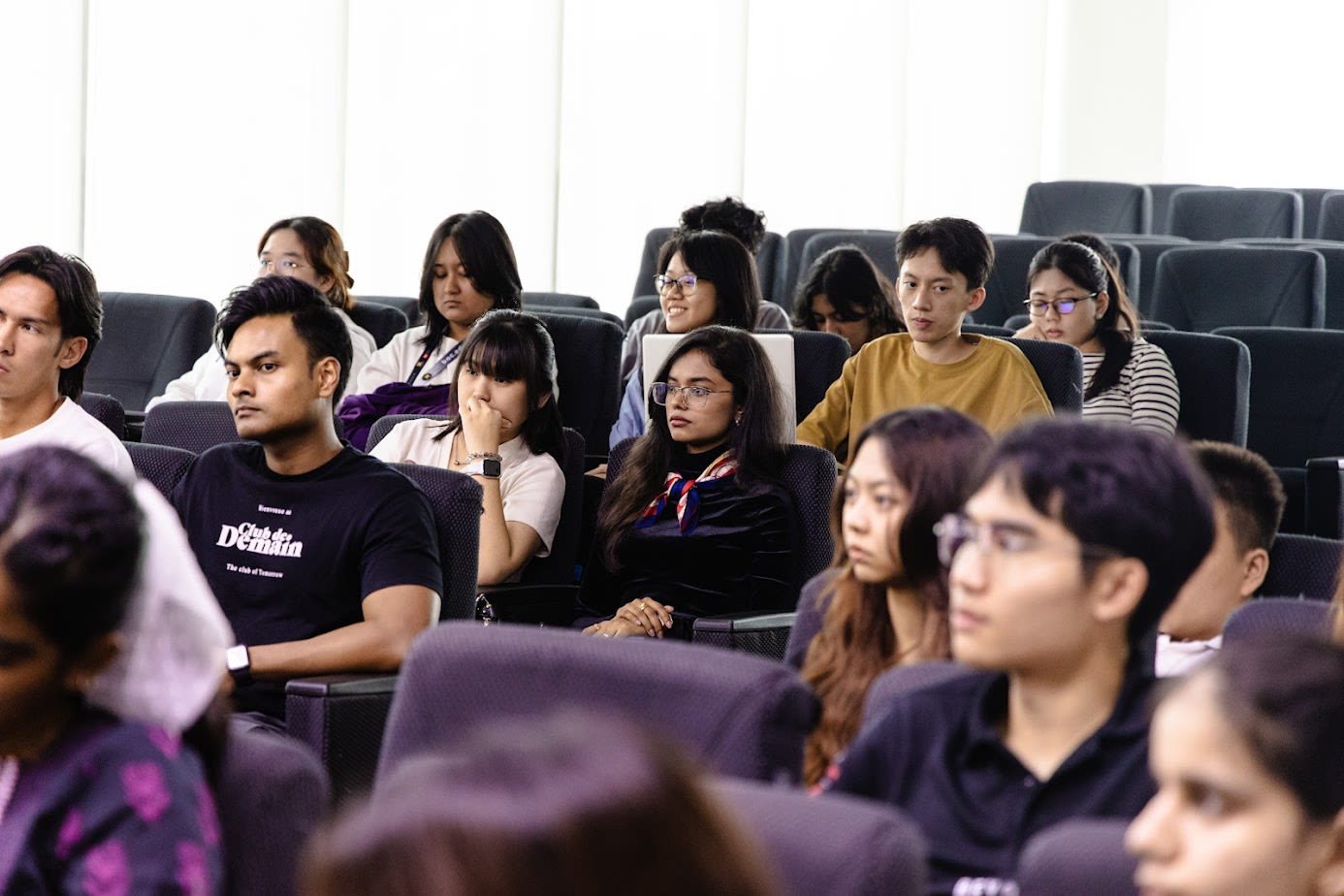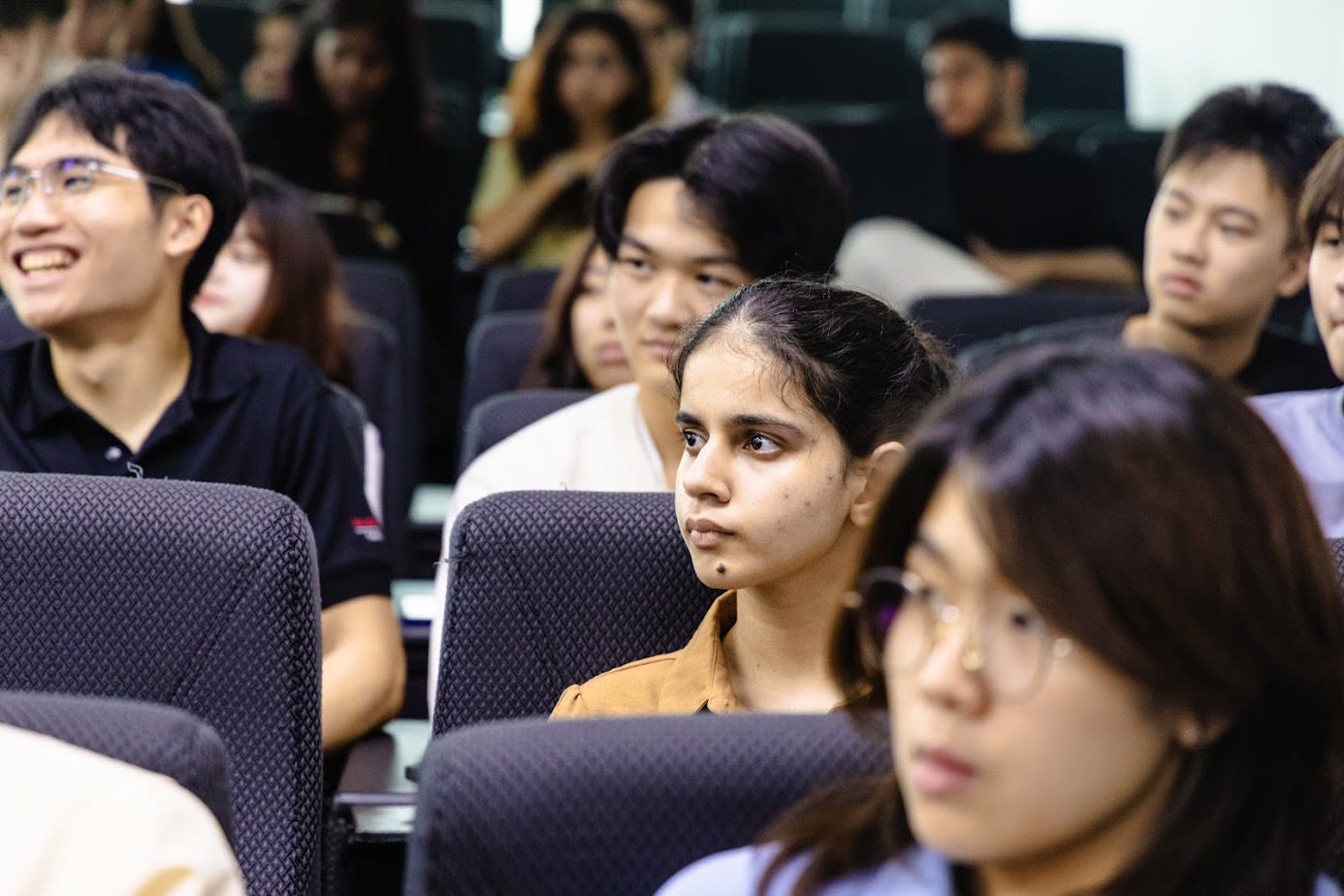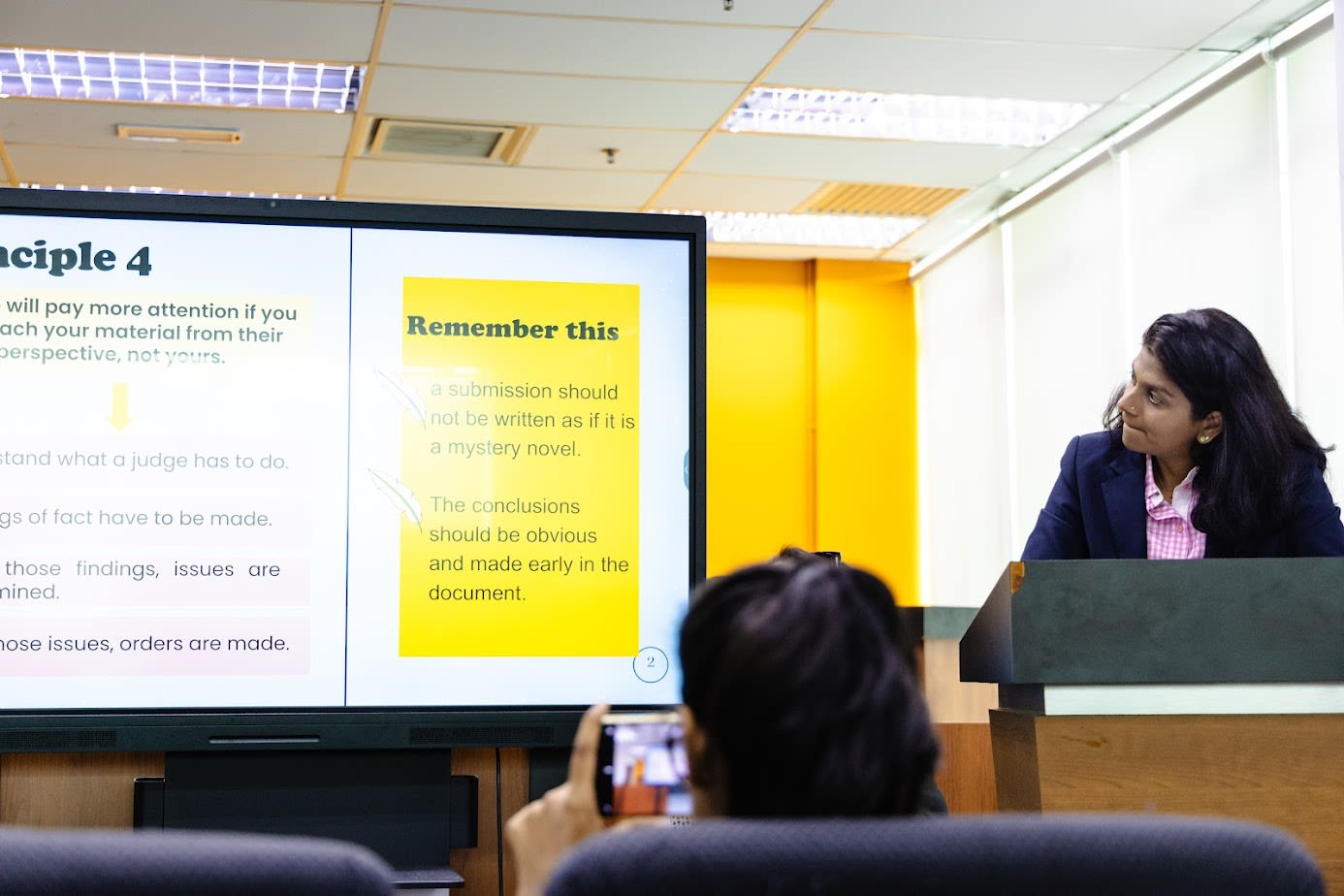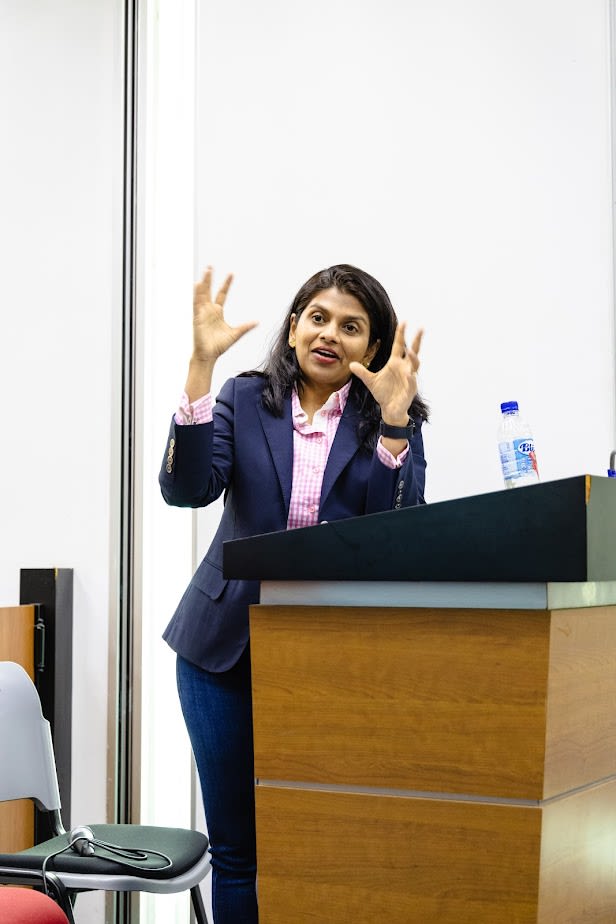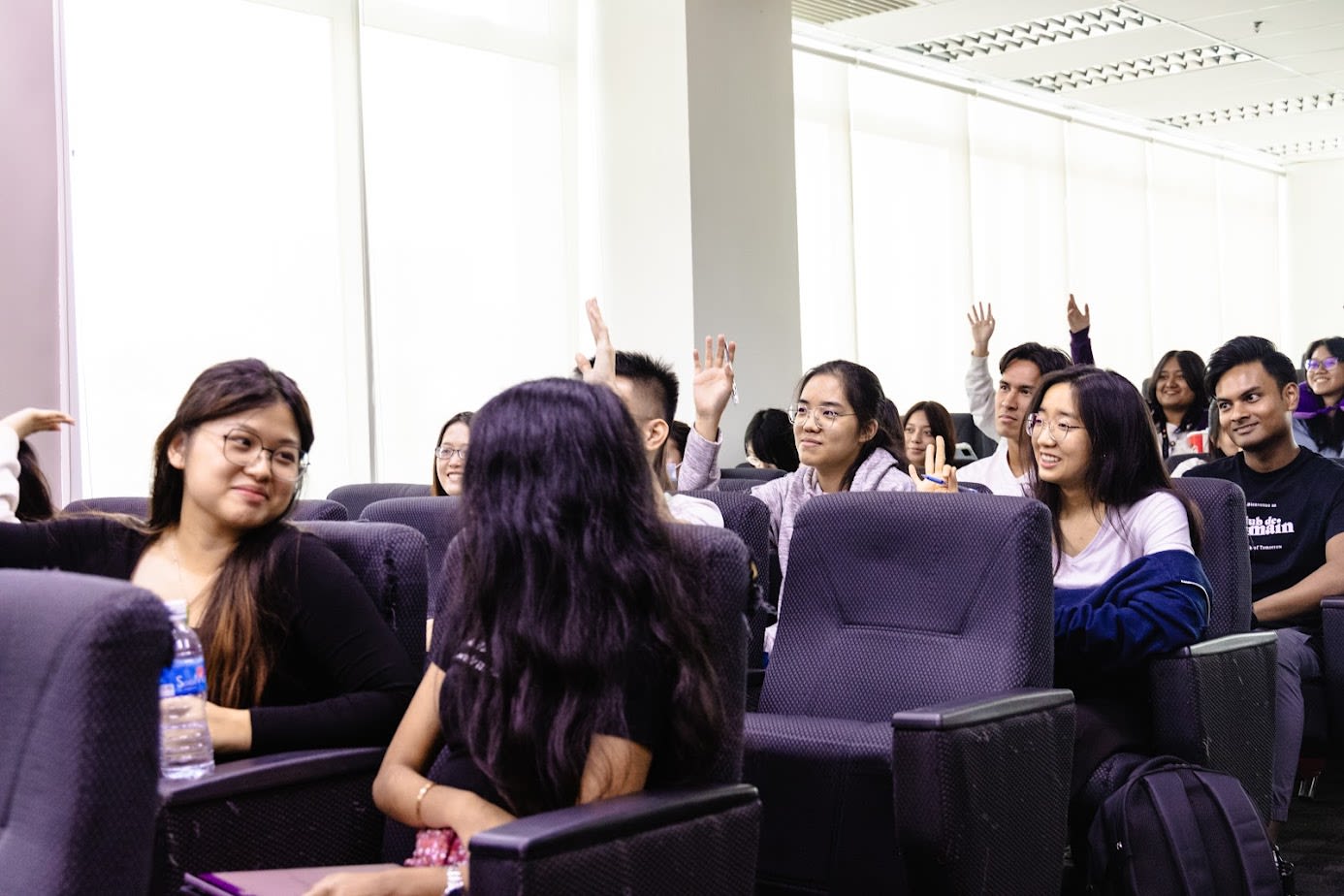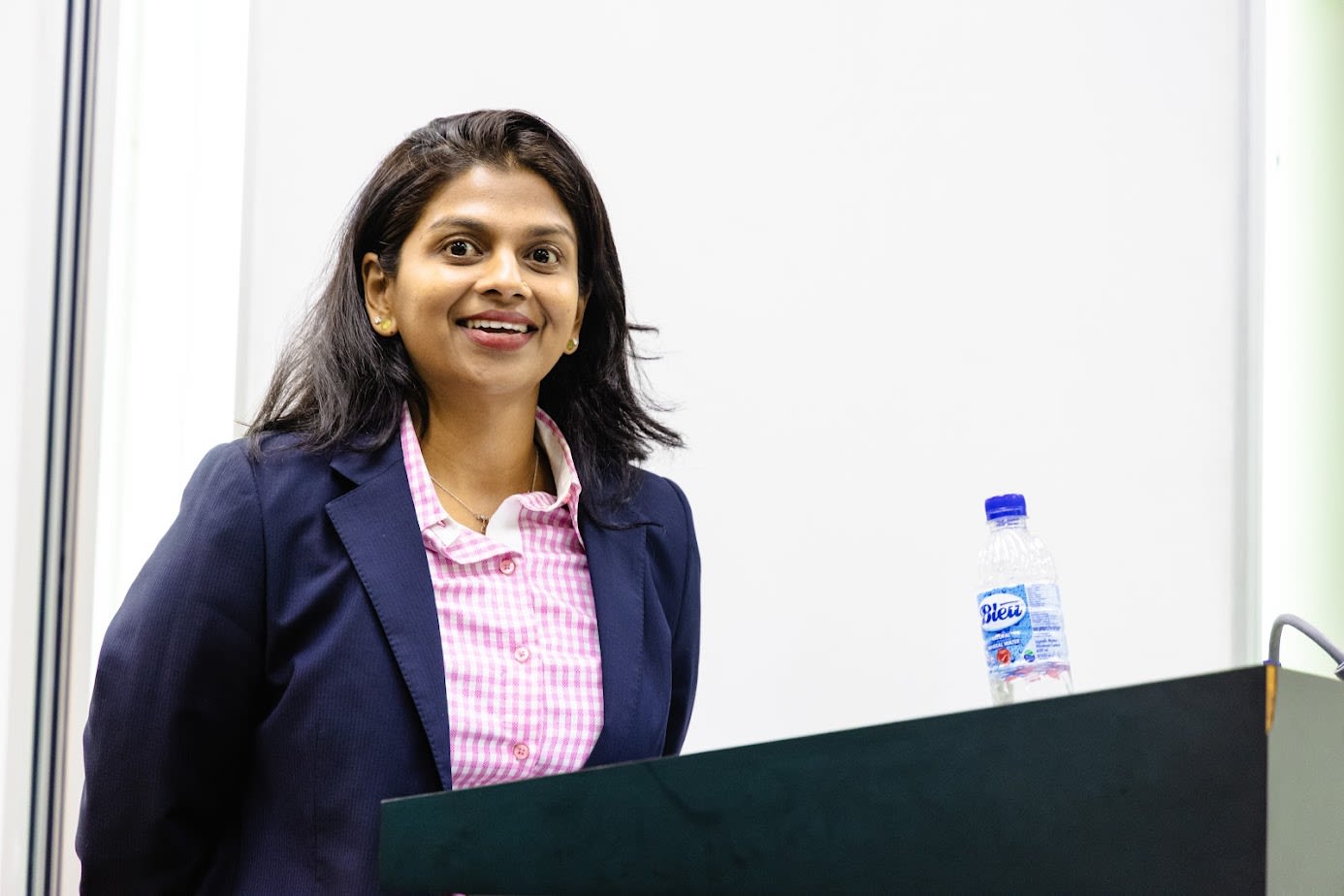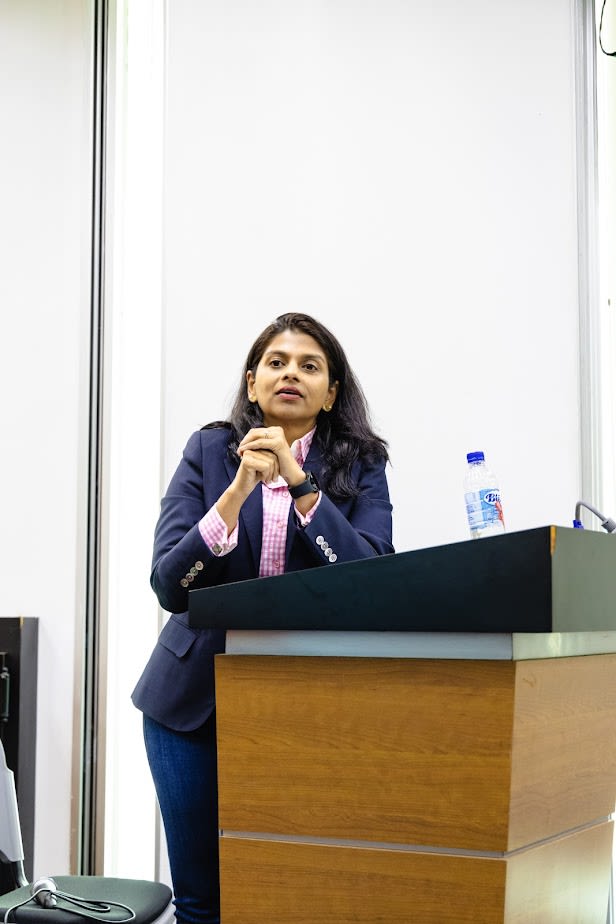Internal Moot Championships 2024 Workshop: Day 2

A Seasoned Veteran
The second day of the Internal Moot Championships 2024 workshop focused on the crucial aspect of written submissions, featuring returning speaker Lavinia Kumaraendran. Lavinia's expertise and engaging presentation provided participants with a thorough understanding of how to craft persuasive and effective written submissions.
A seasoned speaker in moot court training, Lavinia guided participants through the intricacies of preparing written submissions. She began by emphasising the importance of a well-structured document, which serves as a roadmap for judges to navigate the arguments presented.
Knowing that the workshop was filled with aspiring mooters, Lavinia took the time to explain that the primary purpose of a written submission is to persuade the judge, and that the document should be drafted in simple English, with clear identification of issues, a reliable statement of facts, and informative section headings.
The main objective was for mooters to present arguments in a manner that is easy for the judge to understand and follow.
Principles and Perspectives
To assist the mooters in the upcoming championship, Lavinia outlined several key principles for creating effective written submissions:
Principle 1: Provide a Context/Framework
Written submissions should offer a context that allows the judge to grasp the relevance of the details and arguments presented, making the structure of the information explicit helps judges follow the logic and flow of the submission.
Principle 2: Issue-Based Submissions
Submissions must be issue-based because judgments should be issues-based. This means incorporating facts into legal analysis, linking evidence to facts, and connecting facts to the law. An issue-focused approach ensures that the arguments are relevant and directly address the matters at hand.
Principle 3: Information in Pieces
Lavinia advised that information is better presented in manageable pieces. Keeping paragraphs short, using headings, and breaking up sentences make the submission more readable and accessible.
Principle 4: Judge's Perspective
Judges will pay more attention if you approach the material from their perspective. Understanding what the judge needs to do—making findings of fact, determining issues, and making orders based on those issues—can help frame the submission more effectively.
Intentional Craftwork
New and old mooters were spoiled with crucial and game-changing tips as Lavinia continued with her workshop as she highlighted the importance of a thorough case analysis in written submissions.
This involves writing both the good and bad facts of the case, structuring these facts from best to worst, and preparing to address the bad facts that may be used against you. A well-prepared case analysis helps in presenting a balanced and credible argument.
Beyond that, Lavinia helped mooters even fill in the gaps in their written submissions as well, covering all bases to ensure all the competing and future competitor mooters are prepared as ever, helping them identify gaps in the evidence and make fact gathering easier. Lavinia emphasised the need to structure the written submission as effectively as possible, using headings, captions, and a logical flow to guide the judge through the document.
To top it all off, one of the most crucial tips that was shared was sharing written submissions with peers and trusted individuals to ensure they are clear, concise, and comprehensive. Feedback from others can help identify areas for improvement and ensure the submission is polished. Additionally, using an active voice in the written statement makes the submission more direct and engaging.
At the end of the day, mooters were left inspired, driven and more confident heading into the championship than they did before the 2-day workshop. With detailed guidance on structure, principles and practical tips given by Lavinia Kumaraendran and Abd Azim Bin Abd Razak, every attendee felt better prepared and some even got inspired to join the moot club to be a part of competitions and events like these.
Special thanks to Lavinia Kumaraendran and Abd Azim Bin Abd Razak for taking time out of their busy schedules to provide important guidance for our future moot champions.

